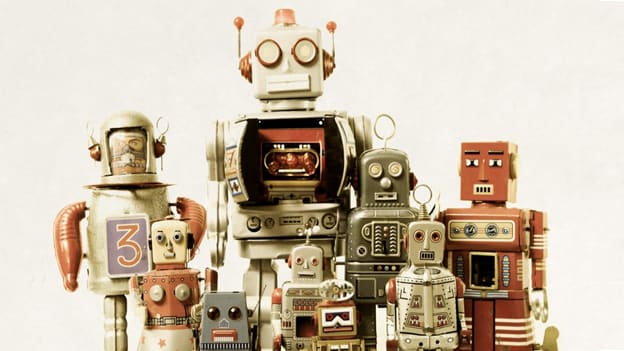'Holmes' & 'Watson': The cases of AI & Automation

The creation of AI platforms is on the rise. As their industrial usage in automating transactional jobs increases, more and more tech giants are finding themselves in need of creating such smart AI platforms. These platforms today are helping companies to perform intelligent automation and cutting down processes and job portfolios to ease business functions.
Take the recent news of Capgemini using IBMs Watson platform, cognitive computing AI platform. Capgemini has replaced around 30-40% of the work done by its resource management group with the Watson platform now performing the transactional job of assigning projects to employees. Resource management groups in IT companies are responsible for assessing skills and then assigning someone to a project. The group, generally disliked by employees, is often blamed for unsatisfactory assignments. But now employees at Capgemini will have to blame IBM's cognitive computing system, Watson if their projects fail to please them, as reported by ET recently.
Following in similar footsteps, Wipro’s AI platform Holmes is said to automate fixed price projects, freeing around 3,000 engineers from mundane software maintenance activities. This comes as a great boon as the company looks at expanding its revenue growth. The freed up workforce can now be engaged in more challenging tasks, yielding better productivity.
Indian tech giant Infosys has also provided its AI platform Mana to help companies automate processes. As businesses realize the importance, and more specifically the advantages, of using AI platforms to make business functions simpler and more productive, more shall the application of AI platforms and robotics increase across both products and service industries.
The shift today is not only driven by tech giants like IBM and Wipro. The potential of artificial intelligence and advanced robotics to perform tasks once reserved for humans is no longer reserved for spectacular demonstrations by the just the likes of IBM’s Watson, Rethink Robotics’ Baxter, DeepMind, or Google’s driverless car. One finds the automated process at multiple places. From airports to running subway metros today, most find the application of automating software useful. The ease of access today has propelled multiple startups today to leverage open source platforms to create customized solutions for companies across the board
For the most part of such automation processes, the result has been the same —increased efficiency at the cost of freeing up human capital within companies. And the result is only going to get amplified as more and more businesses find the application of such platforms useful. This makes the role of HR even more critical within businesses. As companies slowly realize the business need of implementing such nuances and highly efficient platforms for processes automation, it becomes HR’s role today to actively shape the discussion while keeping the workforce at the center of it all.
According to a Mckinsey report on Workplace Automation, that fear of such platforms automating occupations has been rather incorrect, at least at this stage. Automation truly benefits companies when activities and processes are automated. This, in turn, creates the need for entire business processes to be transformed, and jobs performed by people to be redefined. HR professional here become crucial role players in ensuring such transformation processes don’t destabilize the growth of companies. This can only be done by engaging proactively with other business vertical heads to create resource allocation plans and helping the talent within the companies chart a journey that benefits from such automation processes. Contrary to the popular belief, it is not only low skill or low wage processes that can be automated but the study also found that even the highest-paid occupations in the businesses, such as financial managers and senior executives, including CEOs, have a significant amount of activity that can be automated.
The future today, therefore, is more about the type of jobs we need to create, rather than spending our energies on the ones we could protect. The new generation of the workforce that will soon become a part of talent pools that companies have an access to come with a very different set of skill sets. HR leaders today have to plan ahead to ensure that this portion of the workforce finds suitable employment opportunities while businesses are able to seamlessly adopt AI platforms that automate processes. Leaders today, from the C-suite to the front line level, will need to redefine jobs and processes so that their organizations can take advantage of the automation potential that is distributed across them. And HR professionals across industries today have to lead such conversations.











